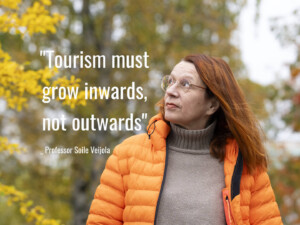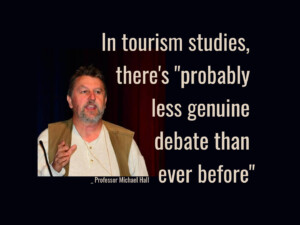Michele Sambaldi on technology, overtourism, sustainability, & connectivity
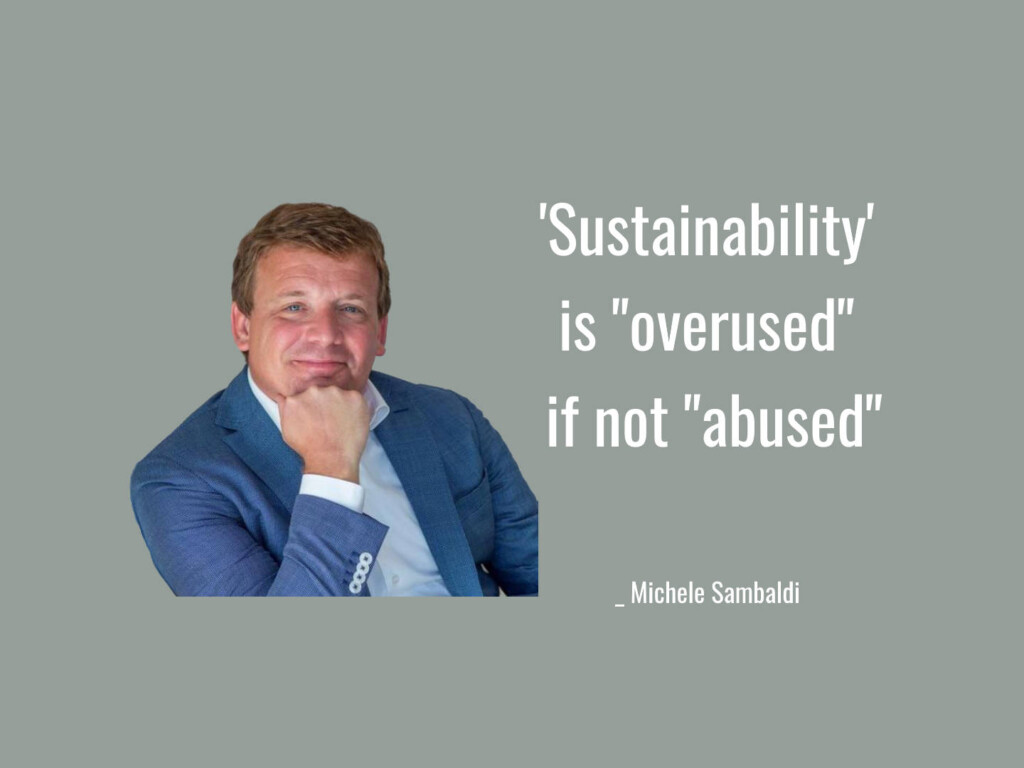
Michele Sambaldi stresses the need to keep one’s promises in order to succeed in hospitality and tourism.
He also notes the contradictions inherent in discussions around overtourism, sustainability, infrastructure, and development.
Mr Sambaldi participated in a Tourism’s Horizon Interview. For this “Good Tourism” Insight, the interviewer Saverio Francesco Bertolucci summarises the highlights. [The full transcripts of the Tourism’s Horizon Interviews are available on Substack.]
Contents
Who is Michele Sambaldi?
Michele Sambaldi is synonymous with efficient local development, luxury hospitality management, and attention to detail. The Italian’s 20+-year career in the industry makes him one of the most interesting and entertaining figures to interview in the global hospitality scene.
Having recently reinvented himself as a hospitality consultant, Mr Sambaldi’s professional background in business and luxury management included stints at Bulgari Hotels and Resorts and Pellicano Hotels; part of “The Leading Hotels of the World”.
Mr Sambaldi is interested in all facets of the hospitality industry, including investment and development; where it begins to scale at the local level. He serves on the advisory board of the ITHIC, the Italian Hospitality Investment Conference. And for two years he was a director of Ischia is More, an initiative by entrepreneurs and local authorities to enhance the quality of life on the island of Ischia, Italy.
The social aspect of hospitality is surely the key pillar for Michele, who has always been open to participating in discussions and panels with many talents across different universities and conferences. Indeed, he did not hesitate a moment in saying yes to the Tourism’s Horizon Interviews!
‘BRAND’ matters in the high-tech present
Comparing the past with the present, Mr Sambaldi identifies technology and sustainability as the two key milestones for tourism development.
Technology has allowed brands to gain clients, add human capital, and grant a higher quality of labour. At the same time, the virtual world has offered customers the possibility to design and actively participate in their holiday planning, and then share every moment in real time.
For Mr Sambaldi, this tech revolution necessitates a stronger focus on “BRAND”, which he himself emphasises in capital letters. The image and value of one’s brand has never been more at risk as bad reviews have never been able to spread so fast.
The technologies that facilitate the fast dissemination of customers’ shared experiences, both good and bad, puts overwhelming pressure on entrepreneurs to harness it; to emphasise the good and to swiftly and visibly resolve the bad.
Mr Sambaldi stresses that technology is in every aspect of the customer journey map. We cannot talk about tourism without talking about technology. In this regard, maintaining the promise of what has been offered is fundamental.
Mr Sambaldi’s suggestion to every entrepreneur is to keep and motivate the right employees to deliver on your brand promise.
Don’t miss other “GT” content tagged with “Marketing”
Overtourism vs the common good
The growing numbers of tourists worldwide worries Mr Sambaldi. He is sure that the 1.5 billion tourists who now travel every year is a level close to saturation!
Mr Sambaldi calls for strong co-creative approaches towards the bene comune (common good) in order to tackle mass tourism challenges. He explains how the pandemic allowed people to consider local tourism, and how Ischia citizens, for example, found a way to come together to reconsider the island’s tourism strategies.
When pressed about the topic of overtourism, he says the term is not one he favours; that it is inappropriate with respect to “seasonal diversification”.
He explains that the term ‘seasonal diversification’ has a better focus since some regions have historically relied on a tourism high season in the same way an agricultural region may rely on an annual harvest. These places may deliberately set out to achieve for a limited season what outsiders might call overtourism.
Overall, Mr Sambaldi claims that academia and national institutions have to carefully consider such data in order to propose alternative and innovative methods which will push the industry towards a sustainable objective.
‘Sustainability’ is an overused term
Mr Sambaldi does not deny the rising importance of sustainable reforms in the hospitality and travel industry, however he thinks ‘sustainability’ is an “overused”, if not “abused” term.
According to Mr Sambaldi, attention to sustainability will increase as young talents emerge from tourism schools where destination management is discussed with a humanistic touch. However, he cautions that environmental sustainability in the real world is hard to achieve, particularly in large-scale projects or over vast regions.
Of the three main pillars of sustainability — economic, social, and environmental — his attention to the social becomes evident when he talks about the need for greater “entrepreneurial and managerial understanding that a portion of time, profits, and resources should benefit the local community”.
This is perhaps recognition that with greater social (and economic) security comes more time to worry about and attend to nature and the environment.
Environmental sustainability is directly connected with a culture of placing limits on behaviour. Mr Sambaldi stresses that it is the elite — the people most likely to afford luxury experiences (and most likely to be positioned to set limits) — who should be most affected by the enforcement of boundaries on what tourists can do.
Luxury that is glitz and grandeur is evidently antithetical to sustainable and responsible behaviours. Is all tourism an unsustainable luxury?
Read more “Good Tourism” Insight Interviews
The great connector
Transportation infrastructure is a great connector to and between the “lesser-known” parts of the world, Mr Sambaldi says.
However, he acknowledges that this reality clashes with his more romantic view of rurality and peripherality: “[B]eing inaccessible or less accessible may protect certain balances and perhaps serve as one of the defences against overtourism”.
Thus the travel & tourism industry’s infrastructure represents both the fulfilment of a need and the incurment of a cost.
Reflecting on his experiences and consuming news of the world’s geopolitical strife have reminded Mr Sambaldi of the volatility of life; how quickly societies and entire nations can be upended.
It is worth remembering that the travel & tourism industry offers more than a casual escape from the humdrum of our everyday lives. It is a great connector of people.
In the context of war, our infrastructure offers pathways to safety. And it can connect those who would sit down, break bread, and forge lasting peace.
What do you think?
Share your own thoughts in a comment below. Or write a deeper “GT” Insight. The “Good Tourism” Blog welcomes diversity of opinion and perspective about travel & tourism, because travel & tourism is everyone’s business.
“GT” is where free thought travels.
About the author
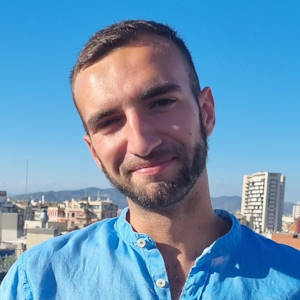
Saverio Francesco Bertolucci studied international tourism & leisure at Università di Bologna, Italy and sustainable tourism development at Aalborg University, Denmark.
Currently working as a commercial assistant with VDB Luxury Properties in Barcelona, Spain, the quadrilingual Italian is interested in destination management, the experience economy, and customer care, and has a passion for social sustainability, remote tourism, and co-creation.
About the Tourism’s Horizon Interviews
“Good Tourism” Insight Partner Tourism’s Horizon: Travel for the Millions, in collaboration with “GT”, has sought the candid views of well-known and respected experts on tourism’s past, present, and future.
The Tourism’s Horizon Interviews involves Jim Butcher, Vilhelmiina Vainikka, Peter Smith, Saverio Francesco Bertolucci, David Jarratt, and Sudipta Sarkar as interviewers. The “Good Tourism” Blog will publish their highlights and commentary as “GT” Insights.
Read the full transcripts of each interview on Tourism’s Horizon’s substack.
Featured image (top of post)
Michele Sambaldi took part in the Tourism’s Horizon Interviews and spoke about, among other things, technology, overtourism, sustainability, and connectivity with Saverio Francesco Bertolucci.



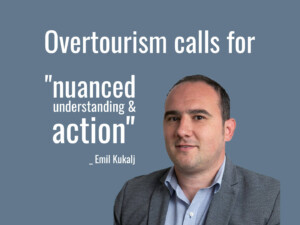
![Michele Sambaldi on technology, overtourism, sustainability, & connectivity 5 Professor Dimitrios Buhalis on the ‘democratisation of tourism’ vs ‘overtourism’ ... “[T]here is no such thing as overtourism!”](https://www.goodtourismblog.com/wp-content/uploads/2024/02/Professor-Dimitrios-Buhalis-300x225.jpg)
